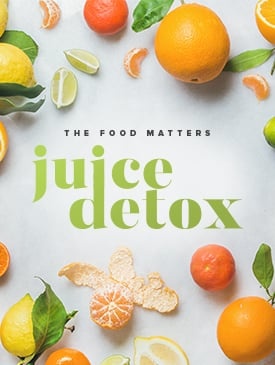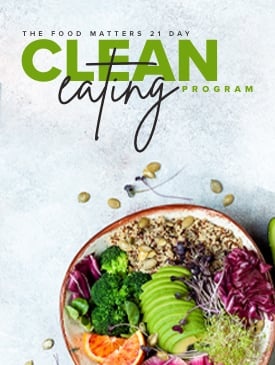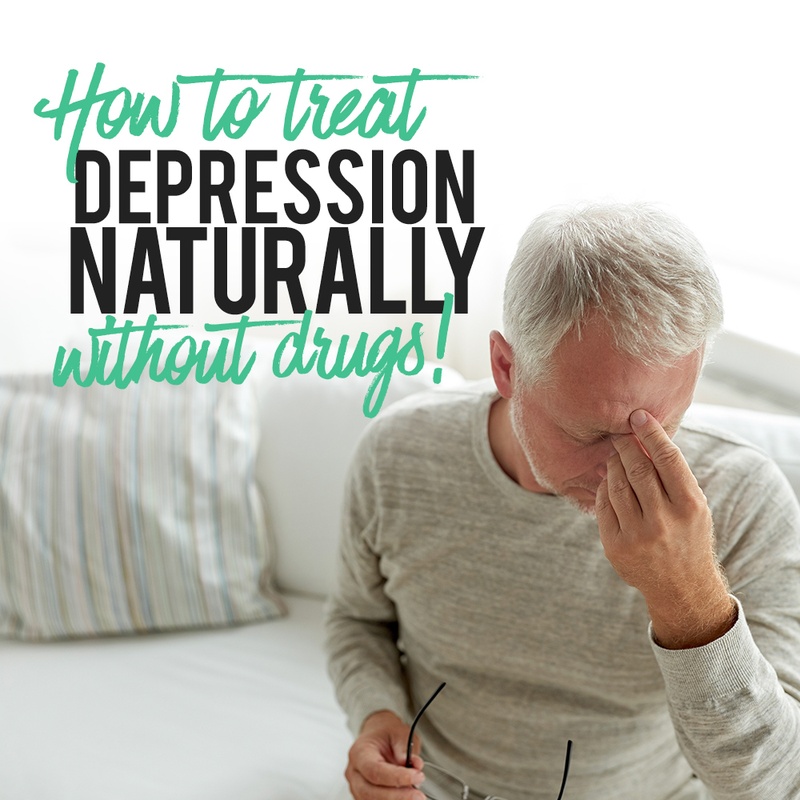Do you suffer from depression? Please know this: you are not alone.
Depression currently impacts over 16 million Americans and is the second most common condition seen in general practices across the United States (1). It is a growing condition, which is evidenced by the fact that insurance for mental health disorders has doubled in the last 15 years.
Depression can have a devastating effect on not only the person impacted but all of their loved ones. For those who know someone who struggles with this illness, you will know that the journey is unpredictable and emotional. Although it can be challenging to see at the time, being diagnosed with a condition of this nature can be a beautiful wake-up call to re-evaluate your life: your purpose, lifestyle, support circle, diet and environment.
The common approach in modern medicine is that doctors often treat these conditions with pharmaceutical medications. However, 30% of patients do not respond to this treatment and the remaining 70% fail to achieve complete remission(2). This is why more and more people are turning to natural healing methods which have been found to be just as effective, if not more, than their conventional counterparts(3).
These ancient healing modalities are so powerfully effective as they treat the root cause of the condition, not just the symptoms. This may vary from person to person, but a combination of simple solutions like overcoming nutritional deficiencies, balancing brain biochemicals through natural supplements and making space for a restorative emotional practice can be incredibly effective.
It is also important to understand that a person’s level of depression can vary from mild to severe. No matter where you are at, there is always hope to heal and feel better.
.jpg)
Causes
The onset of depression may stem from a number of factors and varies from person to person. Many people’s depression stems from unfortunate life circumstances. However, prolonged and ongoing depression can be exacerbated because of what is actually going on biochemically in a person’s body, due to a number of different dynamics.
Here are some of the factors which may contribute to its onset: emotional trauma, loss of a loved one, lack of a support circle, prolonged stress, lack of purpose, an unhealthy lifestyle, poor diet, biochemical imbalances, medication side effects, prolonged medication use, imbalanced gut health, excessive alcohol intake and hormonal imbalances.
Symptoms
- Low moods or sadness
- Feeling hopeless or helpless
- Sleep excessively or feel pessimistic when you wake
- Low self-esteem
- Feeling irritable or intolerant of others
- Having no interest in things you used to love
- Feeling anxious or worried
- Having suicidal thoughts
- Loss of appetite or excessive fluctuation in weight
- Low libido & energy levels
- Drink more alcohol than you used to
.jpg)
Treatment
Nutritional Guidelines for Healing
- Add Omega-3 rich foods to your diet - Your brain is designed to thrive on a diet rich in Omega-3 fatty acids. Often, if suffering from depression, you may be deficient in this essential nutrient. Consume more wild-caught fish such as salmon and also plant-based forms such as flax and chia seeds (you can easily add these seeds to smoothies or sprinkle over salads).
- Get plenty of good quality protein - Include more wild-caught fish, eggs, organic turkey, nuts and seeds in your diet. Foods rich in the amino acid L-tryptophan, help to build serotonin, essential for overcoming depression and insomnia. In the Food Matters documentary, Dr. Andrew Saul comments that 2 handfuls of cashews have the therapeutic equivalent of a dose of prozac because of their ability to support serotonin production in the brain. If you’re unsure how to get started with adding more protein and healthy fats into your diet let us guide you with our 21 Day Food Matters Clean Eating Program.
- Drink Fresh Juice daily - Have a fresh vegetable juice daily. Choose organic and cold-pressed, where possible. We recommend juicing 4 stems kale, 1 lemon, ½ beetroot, 1 cucumber & 1 apple (if desired). If you are short on time, simply have 1 tsp of Food Matters Recommended Greens in water. These super drinks offer a quick nutrient hit and are full of folate and antioxidants, both of which have been found to be protective against depression (4).
- Antioxidant Superfoods - Drink green tea daily and enjoy berries regularly as snacks. These foods are rich in antioxidants, which help to counteract free radicals in the body. This is important as emotional distress releases free radicals in the body which can damage cells and, if left unchecked, can contribute to the formation of certain diseases.
- Enjoy herbal tea - Drink chamomile, lemon balm or passionflower tea before bed each night. These herbs have a calming effect on the body and can help to reduce the activity of depression-inducing brain cells. These herbs are incredibly helpful in reducing the intensity of insomnia and anxiety. (5,6)
- Stay hydrated - Drink at least 2 L of filtered water or spring water each day. Our brains are over 70% water and therefore dehydration can very quickly have a significant impact on brain function. Dehydration slows the transmission of messages to the rest of the body and the transportation of oxygen to the brain. This can leave us feeling slow and foggy, which is not ideal. If you are used to drinking soda, switch it out for a refreshing sparkling water with fresh lime(7).
Herbal, Superfood and Supplement Therapy
- St. John's Wort - Take 300 mg of St. John’s Wort, three times daily and ensure that the formula you choose contains 0.3% hypericin. St. John’s Wort helps to balance neurochemicals within the brain, which improves mood and can reduce symptoms of insomnia, anxiety and fatigue (8). It is important to check with your practitioner before self-prescribing, particularly if you are currently taking any medications.
- Essential Fatty Acids - Take 1,000 - 4,000 mg of a supplement that is high in essential fatty acids, such as quality fish oil or flax oil (9) each day. These fatty acids cannot be made internally so it is essential that we get them through the foods we eat or supplements we take. These help to reduce symptoms of depression as they play an important role in building brain structure, as messengers, and also in the creation and function of brain neurotransmitters (10).
- Niacin - Take 25 mg, three time daily with meals with your health practitioner's supervision. Niacin is vitamin B-3, one of the water soluble B-complex vitamins. Niacin's feature is its ability to greatly reduce anxiety and depression. Dr. Andrew Saul uses it on his patients and calls the effect the ‘niacin flush’. You can find out more this technique here.
- Magnesium - Take 500 mg of pure magnesium glyicnate each day. Supplementation helps to replenish magnesium levels in the brain. This is important as depression is associated with lower levels of brain magnesium and is further depleted by the action of antidepressant medication. Studies have found that higher concentration of brain magnesium is accompanied by higher levels of serotonin, which is a mood boosting happy hormone (11).
- Curcumin - Take 1,000 mg of curcumin daily. Curcumin is the primary active component in turmeric, containing potent anti-inflammatory and antioxidant properties. It has been found to have the ability to modulate the release of serotonin and dopamine in the body, which are responsible for feelings of relaxation and happiness. To increase the bioavailability of curcumin, it is important to combine it with black pepper and a quality oil like coconut oil.
- Vitamin C - Vitamin C at ranges of 500 mg-1000 mg per day according to Dr. Hugh Riordan, have been shown to alleviate depression symptoms. In one study, 40 psychiatric patients were given one gram of ascorbic acid (Vitamin C) every day. Over the course of the study, researchers recorded major improvements in mood. Depression and manic symptoms decreased greatly.
Mind/Body
- Take a sunbath - Spend 15 minutes in the sun daily during the early morning and late afternoon. Sunlight provides vitamin D, which is important for many brain processes and encourages the production of mood-boosting hormones such as serotonin (12). If you think your Vitamin D levels may be low, ask your practitioner for a test and, if necessary, supplement with up to 10,000 IU of Vitamin D3 daily (13).
- Mindfulness meditation - Practice a 10-minute mindfulness meditation twice daily. This can be effective in reducing negative thoughts and controlling dysfunctional beliefs (14). Even something as simple as taking a minute to close your eyes and focus on the inhales and exhales of your breath can largely help with relaxing the mind. If you’re new to meditation and mindfulness, this is a great place to start.
- Exercise - Take a walk in nature daily or get in the garden! Spending time outdoors has been found to boost positive mental wellbeing. This is a great time to focus on feelings of gratitude by being able to appreciate the simple things around you. (15)
- Light therapy - Practice light therapy for 20 minutes each morning. Light therapy is simply the practice of sitting in front of a device called a light box. This devices emits 10,000 lux, which is 20 times stronger than a typical indoor light. This therapy helps to activate serotonin, which is one of the hormones responsible for feelings of happiness, relaxation and self confidence (16).
- Find something you love - Try something new like art, music, gardening, creative writing, dancing or tai chi! These activities are a great way to open up a new avenue for emotional expression. In fact, these activities have been shown to be effective in reducing adverse physiological and psychological outcomes in patients with depression (17).
.jpg)
Programs
Ready to make a change but not sure where to start? Take your pick from a range of inspiring programs tailored to your specific goals. Our guided programs include everything from meal plans, guided meditations, sleep, cleansing and more. They'll support and empower you to improve your health and be the best you can be!

The Food Matters Juice Detox
Designed to help you lose excess weight, increase your energy, and reboot your system from the inside out in just 7 days. Unlock the hand-curated meal plan and shopping lists, and start juicing to feel better than you have in years.
Find Out More
Food Matters 21 Day Clean Eating Program
This is a great program if you want to transition to a healthier lifestyle but are not sure where to start. This wholefood program is filled with delicious recipes that are so quick, easy & affordable that anyone can do it!
Find Out MoreResources
At Food Matters we believe that education is an essential aspect to any healing process. The more we know, the more we are empowered to make change and understand how to decode the messages our bodies are telling us. Here are some suggested resources for you to check out to support you on this journey.
Films

Food Matters
You Are What You Eat
Food Matters is a hard-hitting, fast-paced look at our current state of health. Despite the billions of dollars of funding and research into new, so-called cures, we continue to suffer from a raft of chronic ills and everyday maladies. Patching up an over-toxic and over-indulgent population with a host of toxic therapies and nutrient-sparse foods is definitely not helping the situation.
Read MoreGet the Extra Support You Need & Join Our FMTV Community
When we speak to people who have been able to overcome depression and anxiety naturally, without the use of prescription drugs, most people say that one of the biggest factors in being able to do that has been support.
Surrounding yourself with supportive family and friends is important, but sometimes we need more than that, which is why we’ve created our FMTV community and would like to invite you to join our growing community of like-minded people.
You’ll have access to over 1,000 unique films, expert interview, recipe videos yoga classes and more which will help guide you, PLUS 24/7 support to our Nutritional helpline and Members-Only Facebook group.
You can learn more about our FMTV on-demand video platform & community by clicking here or the banner below.
References
1. JAMA. 2003 Jun 18; 289 (23): 3095-105.
2. TheScientificWorldJOURNAL 2009; 9: 233-1241.
3. Cochrane Database Syst Rev. 2008 Oct 8;(4):CD000448.
4. Psychother Psychosom 2003;72:80–87.
5. Altern Ther Health Med. 2012 Sep-Oct; 18(5): 44–49.
6. Neuroprotective and Neurological Properties of Melissa officinalis. Neurochemical research. 2009; 34: 1955-61.
7. J Am Coll Nutr. 2012 Apr; 31 (2):71-8.
8. Cochrane Database Syst Rev. 2008 Oct 8;(4):CD000448.
9. Alternative Medicine Review Volume. 2003; 8 (4).
10. J Clin Psychiatry. 2007,July; 68:7.
11. Medical Hypotheses. 2010, April; 74 (4): 649-660.
12. Nutrients. 2014; 6(4): 1501-1518.
13. Vitamin D Council. 2015.
14. Cognitive Therapy and Research. 2004, August; 28 (4): 433–455.
15. Ecopsychology. March 2016; 8(1): 8-15.
16. Journal of Affective Disorders. 2008; 108: 11–23.
17. American Journal of Public Health. 2011, Sept.
This article is provided for your general information only and is not intended to be a substitute for independent professional advice, particularly medical advice, diagnosis or treatment. You should always seek medical advice from a qualified health practitioner which takes into account your personal circumstances, general health and medical conditions.











Was this article helpful?
Comment below to let us know!